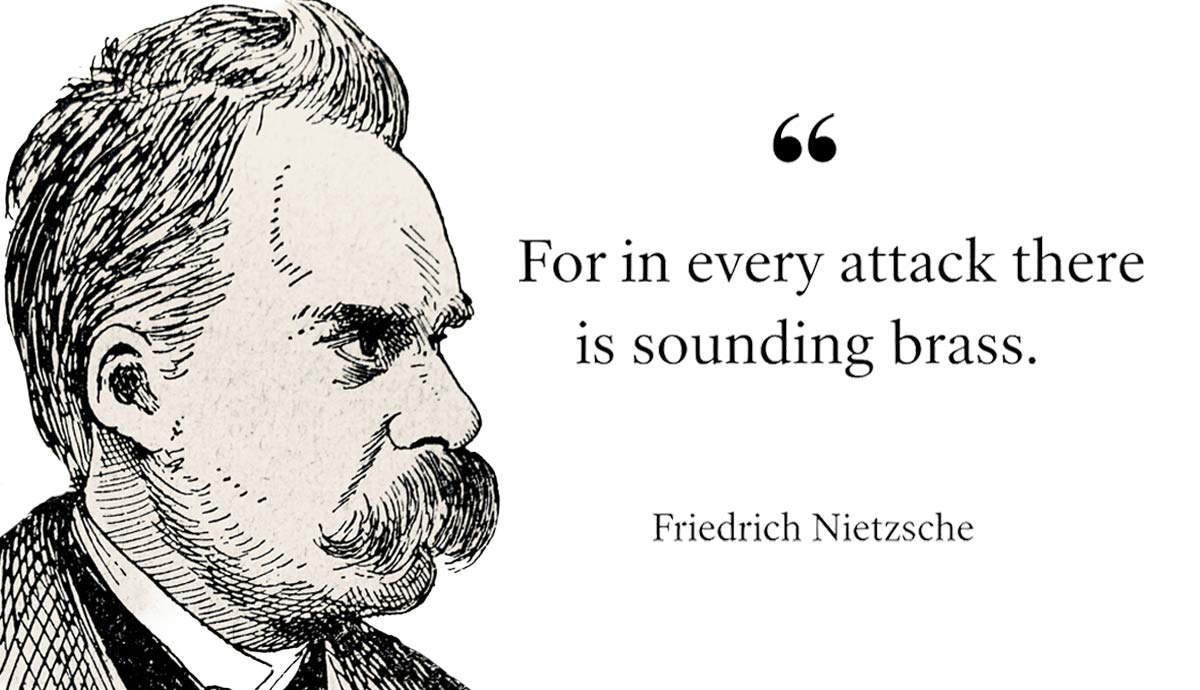
In philosophy, there are many different ways of doing things. One of the big divides we see is between “analytic philosophy” and “continental philosophy.” Although they share a lot—both will do their best to grapple with big questions about what’s real, what you can know, and how you should act—quite a bit separates them. So here’s the question: in what ways does this divide between analytic and continental matter when it comes down to trying to understand human existence?
Definition of Continental and Analytic Philosophy

Continental philosophy—which emerged mostly from Europe between the 19th and 20th centuries—referred to a wide range of philosophies such as phenomenology, existentialism, hermeneutics, or critical theory.
Such philosophical traditions have often sought answers to broader questions about subjects like subjectivity, social structures or politics, cultural critique, or human existence.
For example, Friedrich Nietzsche dived into themes such as power, morality, or willpower, which he used to confront the complexities of being human.
Martin Heidegger explored questions about being in the world and how our understanding of existence shapes reality. At the same time, Jean-Paul Sartre emphasized individual freedom and personal responsibility against life’s inherent absurdity by helping found existentialism.
On the other hand, we have analytic philosophy, which originated mainly in the English-speaking world from the end of the 19th century to the beginning of the 20th century. It emphasizes rigorous logical analysis and precision in language as the best ways to solve philosophical problems.
This tradition tends to focus on more narrow conceptual investigations within specific areas like epistemology (knowledge), ethics (goodness), philosophy of mind, and language.
Take Bertrand Russell, who made major contributions to logic and maths–Principia Mathematica was his brainchild–but also had much to say about the philosophy of language (definite descriptions) and epistemology (sense-data theory).
Or Ludwig Wittgenstein, whose early work focused on how words mean things through their use in what he called “language games” and how they relate logically within propositions.
So, continental philosophy often explores qualitative holistic exploration when it comes down to things like being human. In contrast, analytic philosophy tends towards formal precision linguistic clarity—something that reflects just some parts of the expansive realm of what is known as philosophy.
Primary Areas of Focus

Continental philosophy is diverse in its scope and tackles various concerns relating to human existence, culture, language, and society. It may delve into existentialism, hermeneutics, phenomenology, or social and political philosophy.
Continental philosophers try to understand what it means to exist as a human being or subjectivity and how people relate to one another in specific historical contexts. They often use works of art or literature for inspiration.
For example, Friedrich Nietzsche’s continental philosophy explores the will to power, nihilism, and the superman (übermensch). Jean-Paul Sartre’s existentialist continental philosophy is all about free will, anguish, authenticity, and how each individual must create their own meaning.
Conversely, analytic philosophy is more interested in using rigorous logical analysis and exact language to clarify concepts.
It concentrates on formal logic, semantics (the study of meaning), epistemology (the theory of knowledge), metaphysics (the study of reality), ethics (the study of morality), philosophy of mind, and philosophy of language.
The aim is to provide clear definitions and precise arguments, which are often aided by the scientific method in empirical matters.
For example, Bertrand Russell substantially boosted analytic philosophy with his work on solving philosophical problems with logic. Ludwig Wittgenstein’s work also typifies analytic philosophy. He emphasized that getting our language right was key to accurately representing the world.
Continental philosophy tends to focus on topics such as individual experience or societal issues like politics or culture; analytic philosophers prefer more logical analysis while addressing foundational questions about knowledge or language.
These different leading areas reflect the contrasting approaches taken by continental and analytic philosophers in their investigations.
Methods of Inquiry

Continental philosophy tends to adopt a more interpretive and interdisciplinary approach to its preferred methods of inquiry than analytic philosophy.
Continental philosophers often engage with texts, literature, and art to gain insights or meaning. They emphasize the significance of lived realities, subjective experiences, and the context within which philosophical ideas emerge.
Hermeneutics (interpretation), phenomenology (the study of phenomena), and deconstruction are examples of some prominent methods employed by continental philosophers.
One example is Martin Heidegger’s hermeneutic method, which focuses on interpreting texts to expose hidden meanings or existential insights. For example, his analysis of “Being-in-the-World,” tries to work out how individuals exist within a particular historical and social framework.
Analytic philosophers tend instead towards logical analysis: rigorous argumentation based on conceptual clarity that hinges on close examination of language. As such, they often use formal logic, empirical evidence, thought experiments, and logical coherence.
Here’s another example: Willard Van Orman Quine used logical analysis—examining sentences in natural languages using logic—in his quest to understand the relationship between language and reality: how do our statements about the world align with our experiences?
While both approaches share common goals—understanding fundamental philosophical concepts—their methods differ enormously.
Continental philosophy values interpretation, subjectivity, and contextualization. Analytic philosophy insists upon logical analysis, conceptual clarity (often achieved via careful examination of language), and empirical evidence.
These divergent methodologies yield different perspectives on philosophical problems—one accentuating experiential lived experience embedded in cultural practice, the other underpinned by cruelty rigor underpinned by an empirical grounding.
Impact on Understanding Human Existence

The ways in which continental and analytic philosophy have evolved over time have had different effects on our understanding of what it means to be human.
When we consider the emphasis on subjectivity and subjective experience, it’s easy to see how continental approaches have more often tried to explore the complexities involved in being human; questions about identity, freedom, alienation, existential angst, or meaning-making feature heavily.
So, for instance, going back as far as Jean-Paul Sartre and Albert Camus through the 20th century (and beyond), there was a very strong tendency among some existentialist thinkers to get at something fundamental about human existence by looking at things like our experiences of absurdity when faced with an ultimately indifferent universe.
Conversely, analytic philosophy’s emphasis on logical analysis and conceptual clarity has increased human understanding by providing precise techniques for addressing key philosophical matters.
Analytic philosophers progress our insight into human existence through arduous investigations of topics such as perception, knowledge, language use, and moral reasoning.
For example, in his famous work Naming and Necessity (1980), Saul Kripke presents a new thinking about the nature of identity by studying essentialism and rigid designation; this has implications for how we understand personal identity and its connection to individual experiences.
While distinct in their approaches, continental and analytic philosophy offers valuable insights into what it means to be human.
Continental philosophy delves deep into the subjective experience of existence, exploring emotions and societal contexts. Analytic philosophy contributes by clarifying the concepts we use to understand our existence through logical analysis. These two approaches combine to provide a rich tapestry of thought on human life.
Common Ground and Overlapping Themes

Although continental philosophy and analytic philosophy are associated with different strands of thought, there is a degree of overlap between them.
Common themes and areas of shared interest emerge as they wrestle with philosophical questions about central aspects of human life, such as the nature of reality, knowledge, truth, or morality.
One area where they can be seen to coincide is their treatment of epistemology—the study of knowledge. Analytic methods typically rely on logical analysis and/or empirical evidence to tackle this subject; by contrast, continental approaches tend to adopt a more contingent/subjective stance.
Nonetheless, both traditions invest in understanding how we acquire knowledge or justify our beliefs, not to mention navigating the complexities of perception.
Immanuel Kant’s approach to transcendental idealism offers one example: it inquires into how what we know relates to our cognitive faculties (mind) and reality at large. This work may have had traction within both analytic and continental traditions in terms of getting them interested in epistemology.
When it comes to ethics, both approaches have much in common as well. Continental philosophers, for example, might look at existentialist ethics or social and political philosophy to explore ethical dilemmas in a societal context; analytic philosophers might use logical analysis and metaethics to investigate moral theory.
The two converge in an area demonstrated by philosopher Peter Singer’s approach to ethical decision-making. Singer uses a mix of classical utilitarianism—which aims to bring about the greatest happiness for the greatest number—and modern analytic methods, such as logical argumentation.
These examples show that despite their different methodologies and historical origins, continental and analytic philosophies share concerns about truth, how we get knowledge, moral responsibility, and ethical decision-making.
Acknowledging these areas of overlap can foster more fruitful interdisciplinary exchange that enhances philosophy overall.
So, What Are the Differences Between Continental and Analytic Philosophy?

Continental and analytic philosophy differ in their primary areas of focus, methods of inquiry, and approaches to understanding human existence. Continental philosophy explores subjective experience, culture, language, and societal issues like politics and history. It tends to use interpretive methods such as phenomenology or hermeneutics.
Analytic philosophy emphasizes logical analysis and precision when examining concepts. Its areas include epistemology, metaphysics, ethics, and the philosophy of mind or language. The method used could be formal logic or empirical evidence.
That said, despite these differences, they also have some common ground. They cover questions about truth, how we know things, what is right/wrong, the nature of being a person, etc. Both continental and analytic philosophers make valuable contributions to these shared concerns using quite different methodologies.
These differences between continental and analytic philosophy offer diverse perspectives on philosophical problems that enrich our understanding of the complexities of human existence.
We can foster a more comprehensive dialogue in this discipline by drawing attention to each body of work’s unique resources while seeking out any commonalities where they can intersect.










